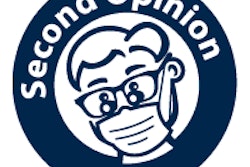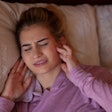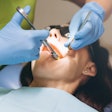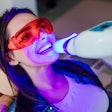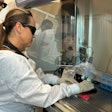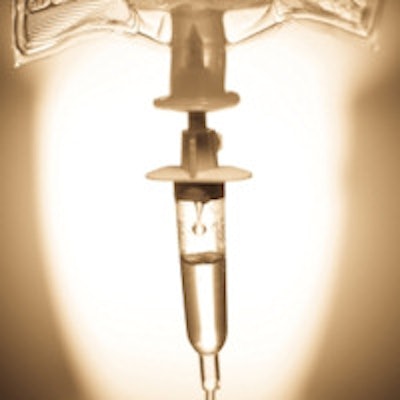
The current status quo with dental sedation is totally unacceptable. The public is being harmed and too much is swept under the rug by a lack of reporting and also nondisclosure and nondisparagement agreements in malpractice settlements.
When a dental sedation sensational death is reported in the media, I frequently hear well-meaning but ignorant colleagues say, "Let the legal process play out, and don't be judgmental. All the facts will come out in time." In reality, our legal system and most regulatory mechanisms rarely allow the full facts to emerge. Since I may ethically only discuss the full facts of an individual case with an attorney of record, I'm often frustrated for the advancement and education of my profession and for the public health and safety. Other dentists who serve as dental legal experts are similarly frustrated.
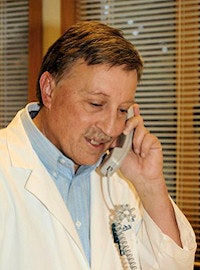 Michael W. Davis, DDS.
Michael W. Davis, DDS.A first step would be the recognition of dental anesthesiology as a specialty. This group would most certainly help establish health and safety guidelines for dental sedation (as existing organizations already do). They could be charged with the responsibility of investigation and tabulation of dental sedation morbidity and mortality by state regulatory boards, or even by a national regulatory authority. They could issue open case reports for dental sedation with adverse outcomes and redact names of patients, staff, and doctors as a learning tool for the dental profession and government regulators.
The specialty society could be involved in an even wider realm of education than they already provide the dental profession. Too few providers in pediatric conscious sedation seem to realize that a child's airway is restricted to approximately a third of that of a comparably sized adult. That airway may be further compromised by swollen tonsillar papillae as the result of seasonal or food allergies. A drop in pediatric blood oxygen may be nearly instantaneous, and continual monitoring by a doctor is vital. This message doesn't seem to be getting into enough of our Medicaid mills, and the result is too often unnecessary pediatric mortality and morbidity.
The health histories of many patients are highly compromised. Pediatric conscious sedation also comes with its own set of unique risks. Particularly in high-risk cases a patient's vital signs must be closely and continuously monitored. Paradoxical drug reactions are not to be ignored. Reversal medications and advanced resuscitation means must be at the ready. Personnel must be highly trained, confident, and prepared for adverse emergency situations. All the while, the doctor is highly focused on the demands of restorative or surgical dentistry.
It makes logical sense that a certified specialist in dental anesthesiology is immediately present and handling the administration of the dental anesthesiology for these especially compromised cases, whether in a dental office or hospital setting. This allows the restorative or surgical dentist to fully concentrate on what they do best. All state dental practice acts should allow for this clinical service, which is in the patient's best interest.
Government needs to discontinue crony-capitalism protection of the dental service organization (DSO) industry. The Federal Trade Commission (FTC) needs to wake up and fully accept that many, if not most, of these dental corporations are clinically operating not under a doctor's direction, but under that of unlicensed corporate managers.
The dentist "owners" are most frequently nominee owners, in my experience, who answer to contractual obligations of the true owner -- the DSO. Patients too frequently are traumatized in these environments, which is quite evident from public exposure of civil malpractice and fraud legal cases. We don't need additional patients with post-straumatic stress disorder (PTSD), who absolutely require dental sedation for any future dental treatments because a prior dentist felt overly pressured from a corporate quota or bonus system.
We need to end the gross overtreatment of Medicaid-eligible children with steel crowns. We need frequent, thorough, and mandatory Medicaid audits. We need far more comprehensive preauthorization systems for dental care and not the old failed regulatory mechanism of "pay-and-chase." Since state governments seem unable or unwilling to spend addition tax revenues on dental Medicaid programs, let's reallocate the money for steel crowns into prevention and education patient services.
Let's also limit the amount of dental services a Medicaid patient can receive without dental sedation. Working within a child's level of understanding and stamina can go a long way in reducing potentials for PTSD.
From my audits of pediatric Medicaid patients, I've seen far too many patients receive round-housing with steel crowns, or "eight-packing" (steel crowns on all deciduous molars), with minimal to no radiographic evidence of dental caries. Further, the amount of local anesthetic delivered to a pediatric dental patient (often 45 to 60 lb) is often inadequate for the very extensive amount of restorative dentistry delivered at a single visit.
Too often, corporate dentistry demands optimal production per patient, regardless of the patient's best interest. In my audits, some of the children were somehow restrained (though often not in patient records) to gain compliance through extensive dental procedures. Obvious and substantial oral discomfort, as well as emotional stress, was highly implied in a review of these records. Many of these PTSD dental patients never fully recover, and their numbers grow every day.
The dental profession doesn't need to hear of yet another patient's death as a sequel to improper dental sedation protocols. We also don't need to hear of a sedation patient's brain damage as the result of inadequate oxygen levels or because of inadequate staff training and preparedness. The entire dental profession takes a black eye when these stories enter the public domain.
We can substantially reduce the incidence and severity of abusive dental care, and, therefore, reduce the future numbers of patients requiring dental sedation because of PTSD. Sadly, the vast majority of these tragic cases could have been avoided.
We know much of what we can do to decrease risks to the public and protect the public interest. So, let's get it done.
Michael W. Davis, DDS, maintains a private general dental practice in Santa Fe, NM. He serves as chairperson for the Santa Fe District Dental Society Peer Review. He is also active in expert witness legal services.
The comments and observations expressed herein do not necessarily reflect the opinions of DrBicuspid.com, nor should they be construed as an endorsement or admonishment of any particular idea, vendor, or organization.





